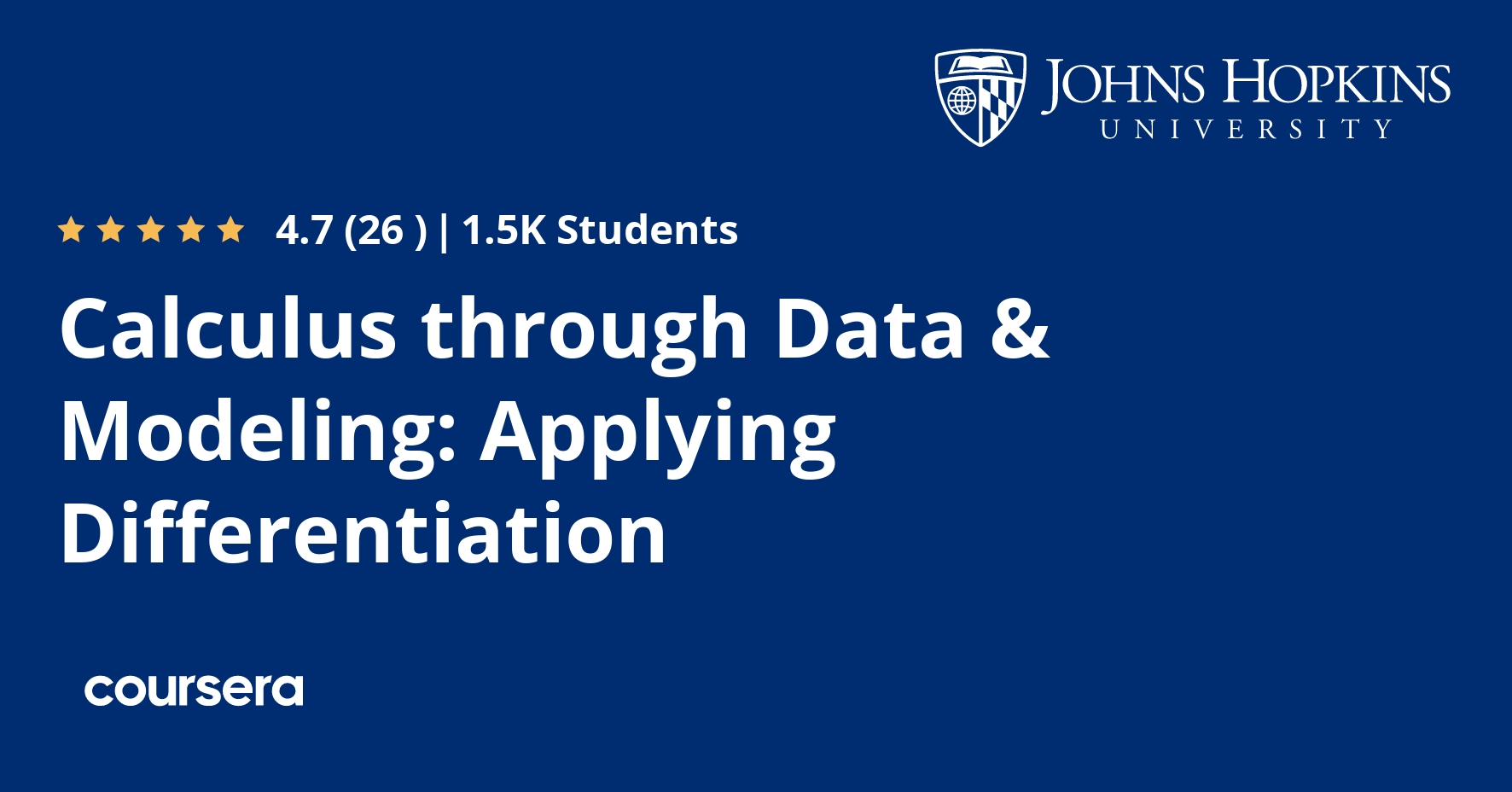Description
As rates of change, derivatives give us information about the shape of a graph. In this course, we will apply the derivative to find linear approximations for single-variable and multi-variable functions. This gives us a straightforward way to estimate functions that may be complicated or difficult to evaluate. We will also use the derivative to locate the maximum and minimum values of a function. These optimization techniques are important for all fields, including the natural sciences and data analysis. The topics in this course lend themselves to many real-world applications, such as machine learning, minimizing costs or maximizing profits.
What you will learn
Linear Approximations and Tangent Planes
In single variable calculus, the derivative computes the slope of the tangent line where defined. This is then used to create the equation of the tangent line at a point, which can be used as an accurate estimation tool for complicated functions. This theory generalizes to lines in space which are used to create tangent planes. In this module, we work through the formulas and applications of these notions, using our developed theory of derivatives and partial derivatives.
Maxima and Minima of Single-Variable Functions
Some of the most important applications of differential calculus are optimization problems in which the goal is to find the optimal (best) solution. For example, problems in marketing, economics, inventory analysis, machine learning, and business are all concerned with finding the best solution. These problems can be reduced to finding the maximum or minimum values of a function using our notions of the derivative.
Maxima and Minima of Multivariable Functions
As models become more complicated, the functions used to describe them do as well. Many functions require more than one input to describe their output. These multivariable functions also contain maximum and minimum values that we seek to find using the tools of calculus. In this module, we will extend our optimization techniques to multivariable functions.
Lagrange Multipliers
In mathematical optimization, the method of Lagrange multipliers is a strategy for finding the local maxima and minima of a function subject to equality constraints. It is named after the mathematician Joseph-Louis Lagrange. In this module, we develop the theory and work through examples of this powerful tool which converts a constrained problem into a form such that the derivative test of an unconstrained problem can still be applied. The relationship between the gradient of the function and gradients of the constraints rather naturally leads to a usually easier reformulation of the original problem.




